
-
Understanding primary immunodeficiency (PI)

Understanding PI
The more you understand about primary immunodeficiency (PI), the better you can live with the disease or support others in your life with PI. Learn more about PI, including the various diagnoses and treatment options.
-
Living with PI
-
Addressing mental health
-
Explaining your diagnosis
- General care
- Get support
- For parents and guardians
-
Managing workplace issues
- Navigating insurance
-
Traveling safely

Living with PI
Living with primary immunodeficiency (PI) can be challenging, but you’re not alone—many people with PI lead full and active lives. With the right support and resources, you can, too.
-
Addressing mental health
-
Get involved

Get involved
Be a hero for those with PI. Change lives by promoting primary immunodeficiency (PI) awareness and taking action in your community through advocacy, donating, volunteering, or fundraising.
-
Advancing research and clinical care
-
Research Grant Program
-
Consulting immunologist
-
Diagnosing PI
-
Getting prior authorization
-
Clinician education
-
Survey research
-
Participating in clinical trials

Advancing research and clinical care
Whether you’re a clinician, researcher, or an individual with primary immunodeficiency (PI), IDF has resources to help you advance the field. Get details on surveys, grants, and clinical trials.
-
Research Grant Program
In her mid-20s, Amy Braselton ran a half marathon – one mile for every surgery she’s had as a result of infections caused by chronic granulomatous disease.
For Amy, running is a freedom she never had as a child. Leg infections caused by CGD limited her mobility, and she used a wheelchair off and on for five years until age 10, when she received her diagnosis.
Years prior to the half-marathon, Amy built up strength in her legs by joining the track team in high school, after medication stabilized the effects of CGD.
“I couldn’t do the physical activity as much as I wanted as a child, so I wanted to celebrate the journey and the transformation and the ability to move my body again,” said Amy. “It was a big achievement and a reminder that I could do hard things and be resilient.”
As a young child growing up in Kansas, Amy developed her first CGD symptoms - numerous ear infections. At age 6, she began to have severe pain in her left leg, and doctors diagnosed her with a bone infection of the femur. They treated the infection with antibiotics and even surgery, but it continued to spread.
“They couldn’t figure out why it didn’t go away; it lingered for several years,” said Amy.
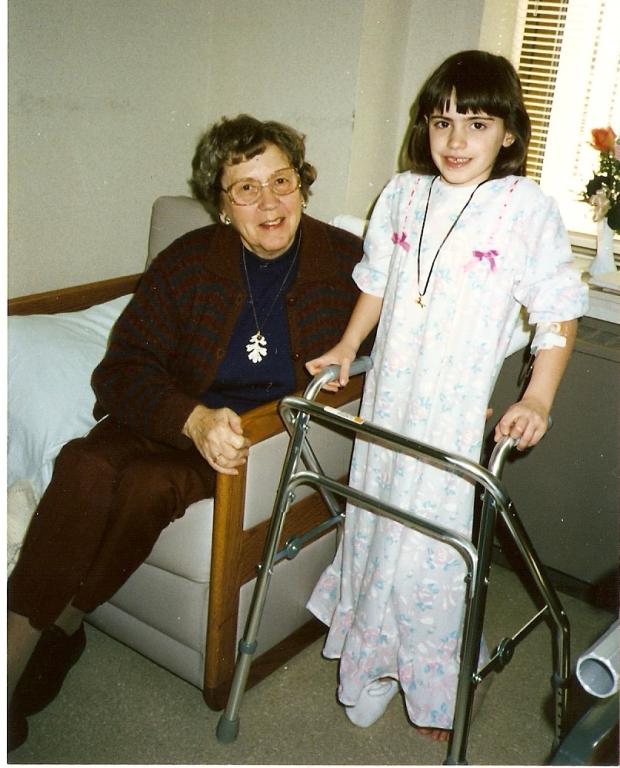
By the time she reached 9 years old, the infection had threatened her life, and her parents took Amy to a hospital in Chicago for a second opinion. Finally, providers discovered the underlying issue – CGD – and put her on preventative antibiotics and Actimmune injections.
Amy enjoyed a period of good health in high school, and even through college, but the leg infection has been a recurring problem in adulthood. She’s also endured skin infections and one bout of pneumonia.
“Other than that, I’ve remained healthy, which I’m grateful for,” she said.
CGD hasn’t stopped Amy from pursuing her career goals. She left her hometown of Manhattan, Kansas as a teen and moved to the southern part of the state, where she earned a bachelor’s degree from Wichita State University. She then obtained her master’s degree from Kansas State University.
After working for several years in public relations and marketing, Amy is currently earning a PhD in communications studies from the University of Kansas while teaching a college-level business speaking class online.
In the midst of her professional achievements, Amy is also growing her family. She and her husband Andy, a middle school teacher, are now parents to daughter Madeline, 18 months old, and the couple wants to have a second child.
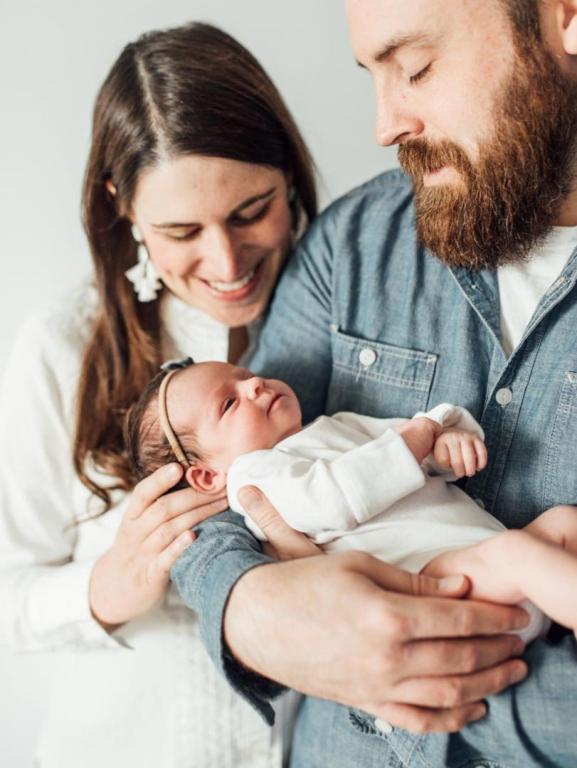
Beyond some heartburn and her leg infection flaring up again, Amy experienced a normal pregnancy,
“Having a child, with CGD is a kind of hold-your-breath type experience. It was a big miracle, and it went very smoothly,” said Amy. “Now we have a protocol instead of building one.”
Amy, 32, said she only just met others, including moms, with CGD two years ago through IDF Get Connected Groups, an IDF Primary Immunodeficiency Conference, the IDF Rare of Rare Summit, Facebook groups, and a Horizon Therapeutics pharmaceutical conference.
Advocacy and education are central to coping with CGD, she said.
“I learned at an early age to advocate for myself. You have to when you have a disease no one knows anything about. You do the research, you ask the questions, and you demand that they try something else,” said Amy.
At the heart of what guides Amy through the toughest of times is faith.
“I think for me one of the most sustaining factors through my journey was the power of having hope - the spiritual nature of the disease was hope in Jesus,” she said.
“In my journey, in all of the uncertainty, they had no answers, no idea how it would turn out. I think finding an anchor, whatever it is, is more important, even beyond the medical treatment.”
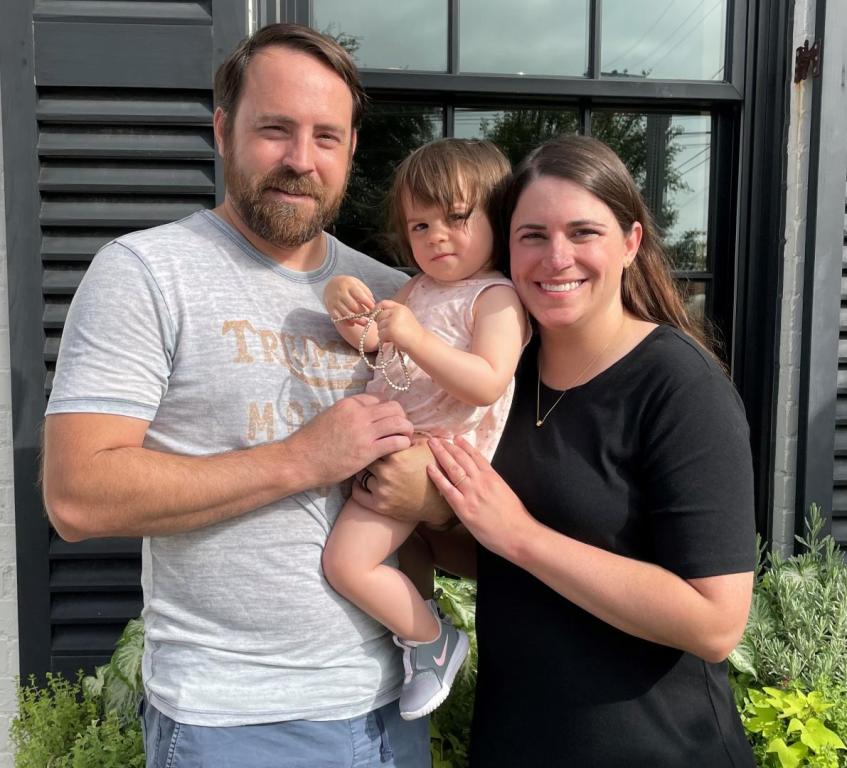
Related resources
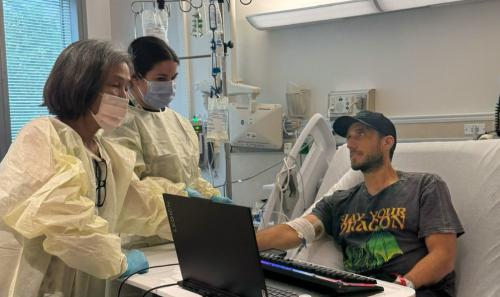
Man with X-linked hyper IgM first-ever to receive novel gene therapy
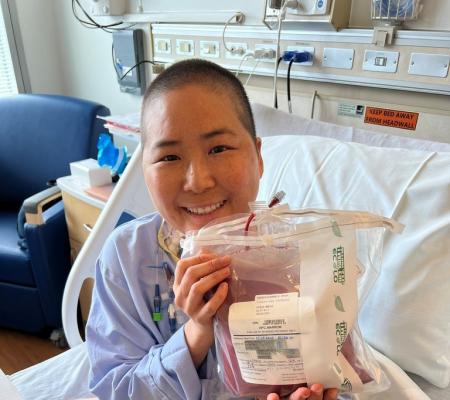
Pharmacist with CVID receives bone marrow transplant

Undiagnosed: Reuben & Sherri Johnson on CGD, chronic illness, and the fight for healthcare
Sign up for updates from IDF
Receive news and helpful resources to your cell phone or inbox. You can change or cancel your subscription at any time.





The Immune Deficiency Foundation improves the diagnosis, treatment, and quality of life for every person affected by primary immunodeficiency.
We foster a community that is connected, engaged, and empowered through advocacy, education, and research.
Combined Charity Campaign | CFC# 66309

